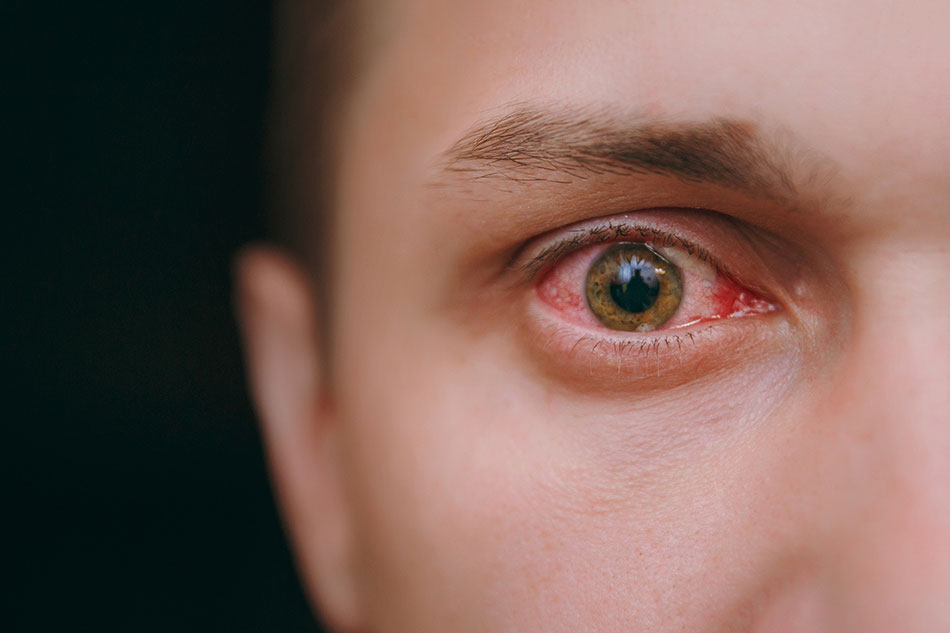How Long Should You Wear Contacts? 6 Tips To Protect Your Eyes

According to a CDC survey, nearly 99% of contact wearers admit to risky habits like reusing solution, skipping cleanings, or wearing contacts too long? According to the CDC, these behaviors increase the chance of eye irritation, infection, and even vision loss.
One of the biggest risks is wearing contact lenses past the recommended time. Almost half of all contact wearers admit to doing it, which can cause serious eye health complications.
So how long should you wear contacts, and how can you make sure you change them on time? Here is what you need to know, plus six easy tips to keep your eyes healthy.
How Long Should You Wear Your Contacts?

How long you should wear your contacts depends on what type you have. Here are the different types of disposable contact lenses and their recommended wearing patterns:
- Daily disposables: Designed for a single day of wear. You throw them away each night. No cleaning or disinfecting is required.
- Weekly or biweekly disposables: Can be worn during the day, removed at night, then cleaned and stored. Replace them with a fresh pair after 1 or 2 weeks.
- Monthly disposables: Worn daily for up to one month, then replaced. Like weeklies, they must be cleaned and stored properly each night.
The countdown begins the moment you open a new pair, not just the days you wear them. For example, a monthly lens should be discarded four weeks after opening, even if you only wore it a few times.
How Bad Is It if You Wear Contacts Too Long?

When you overwear contacts, natural deposits like proteins and lipids build up on the lens surface. This can:
- Make lenses less comfortable over time
- Create tiny scratches on your cornea
- Trap bacteria and increase the risk of infection
According to CDC studies, people who do not replace their lenses on schedule report more discomfort, dryness, and in some cases, worsening vision. Ignoring replacement schedules may also increase the risk of serious conditions such as microbial keratitis.
What Happens if You Sleep With Your Contacts On?
Sleeping in contacts is one of the riskiest behaviors for lens wearers. Studies show that:
- Sleeping in lenses increases the risk of microbial keratitis infection by 6 to 8 times
- Out of 10,000 people who sleep in contacts, about 18 to 20 develop this serious infection each year
Even if your lenses are FDA-approved for extended or “overnight” wear, risks remain. Sleeping with contacts reduces oxygen flow to the cornea, leading to hypoxia (oxygen deprivation), which can cause:
- Dry eye
- Irritation
- Corneal damage over time
The safest choice is always to remove your lenses before bed.
Tips for Changing Your Contacts on Time

Now that you know the risks of forgetting to change your contacts, how can you make sure to remember to change them on time?
1. Set a Reminder on Your Phone
One of the most convenient ways to remember is to set a reminder on your phone. When you open a fresh new pair of contacts, grab your phone and set a reminder for the appropriate date. Depending on your contact lens schedule, this will be in one month, two weeks, or one week. When the day comes to change them, your phone will give you a gentle reminder.
2. Use an App
If you want to be fancy, you can download an app specifically for changing your lenses. There are several smartphone app options to choose from. Some apps can also keep track of the number of lenses you have left so you know when to order new ones.
3. Note Dates Down in Your Planner
Maybe you find inputting data in your phone too cumbersome. Some people like to record things the old-fashioned way, with paper and pen. If you have a planner, you can keep track of your contact lens schedule. Simply note the day you opened a new pair and pencil in the day you're supposed to change them.
4. Make Changing Them a Part of Your Nightly Routine
If you’re in the habit of sleeping with your lenses on overnight, add changing them to your nightly routine. Brush your teeth, wash your face, and remove your contact lenses. This way, when you get ready for bed, it will become an automatic part of your routine.
5. Make Sure to Count Skipped Days
When you open a new pair of lenses, that's the first day you start counting. If you have weekly disposables, you should throw those lenses out seven days after you opened them, even if you only wore them for one day.
The same goes for monthly and biweekly lenses. You should throw them out four weeks or two weeks after you open them, respectively. It may be tempting to extend the use of your contacts if you didn't wear your monthly ones for a full four weeks. However, any money saved isn't worth the risk to your eye health.
6. Tape a Note on Your Bathroom Mirror
If you really have trouble remembering to change your lenses, stick a note on your bathroom mirror with the upcoming change date. This way, you'll be sure not to miss it.
More Tips for Wearing Contacts

Taking care of your contact lenses and following guidelines is important to maintaining your eye health. In addition to changing your contact lenses on time, the CDC recommends always washing and drying your hands before handling them. Also, make sure to see your eye doctor regularly. These simple recommendations can make wearing contacts easy and healthy.
FAQs: Wearing Contacts Too Long
How Long Can You Wear Contact Lenses Each Day?
Most contact lenses should not be worn for more than 8 to 12 hours a day. Overwearing can reduce oxygen to your eyes and cause dryness or irritation.
How Long Do Monthly Contacts Last if You Do Not Wear Them Every Day?
Monthly lenses expire one month after opening, regardless of how often you wear them. They should always be replaced after 30 days.
What Happens if You Wear Contacts Too Long?
Overwearing lenses increases the risk of buildup, dryness, irritation, and infections like keratitis. It can also lead to long-term eye damage.
What Is the Treatment for Wearing Contacts Too Long?
If you experience redness, pain, or blurred vision after overwearing lenses, remove them immediately and contact your eye doctor. Treatment may include prescription drops or medication.
Is It Safe To Sleep in Contacts?
No. Sleeping in contacts significantly increases your risk of infection and corneal complications, even with extended-wear lenses.
